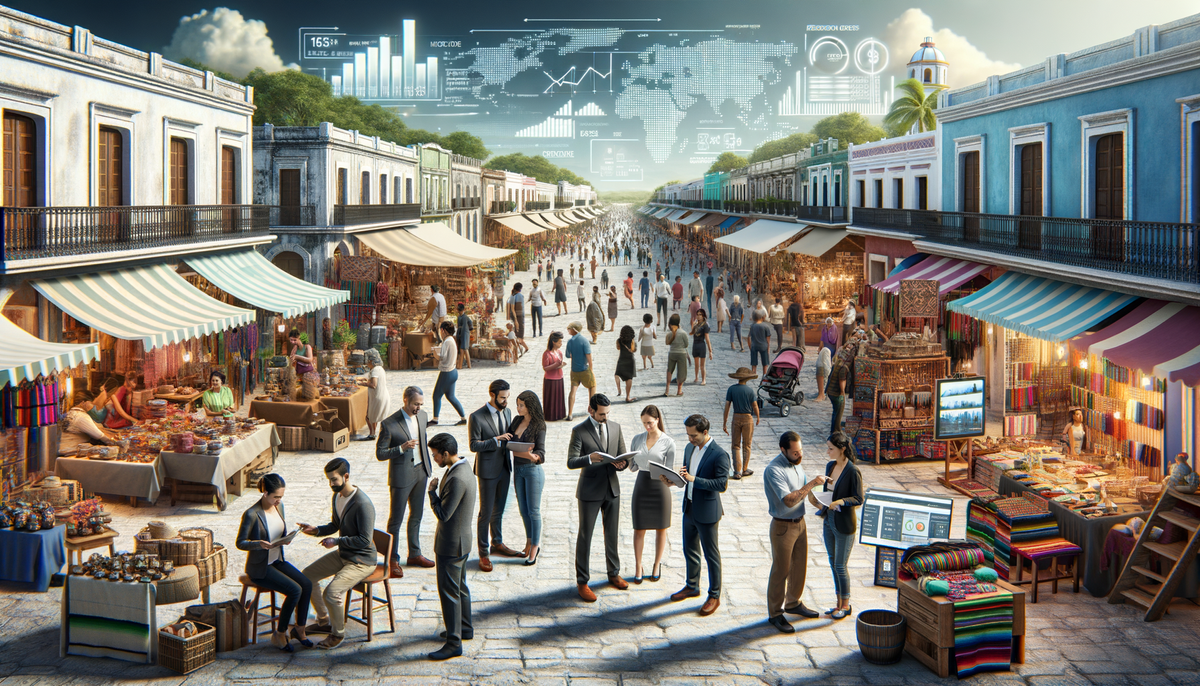Yucatán: Navigating Rising Costs Amid Economic Shifts
Explore how Yucatán navigates rising costs amid tourism and economic shifts. Discover challenges and opportunities for professionals.

The Yucatán Peninsula, with its rich cultural heritage and vibrant economic activity, has long been a point of interest for both business leaders and tourists alike. This week, the Yucatán is in the spotlight as it grapples with the dual challenges of gentrification and economic transformation.
Yucatán: A Region in Transformation
Yucatán is experiencing significant changes driven by both internal and external economic pressures. Rising costs of living and economic adjustments are reshaping the landscape for its residents and businesses. According to insights from Felipe Alonzo Solis, the region is seeing a notable increase in living expenses, which is not being matched by a rise in local wages.
This financial strain is compounded by the effects of gentrification and booming tourism, as illustrated in a detailed report by 24 Horas Yucatán. The influx of tourists and expatriates is driving up property prices, making it challenging for locals to keep up. Additionally, Sol Yucatán highlights that the state is becoming one of the most expensive places to live in Mexico.
Geographic and Economic Insights
The geographical diversity of the Yucatán contributes significantly to its economic dynamics. As part of the larger Yucatán Peninsula, which includes Campeche and Quintana Roo, the state is noted for its flat topography and attractions such as cenotes and ancient Mayan ruins. This rich historical and natural backdrop has always been attractive to tourists, driving the local economy in recent decades.
Historically, the Yucatán economy was rooted in agricultural and natural resource industries, such as henequen and cattle ranching. Today, the economy pivots heavily around tourism, especially in coastal areas, where the industry has flourished. Quintana Roo, home to popular destinations like Cancún and Tulum, showcases how tourism can transform local economies, even as it raises questions about sustainability and local impact.
Societal and Cultural Impacts
The rise in tourism and foreign digital nomads choosing the charming towns of Yucatán as their base has significant cultural implications. It alters community dynamics and strains local infrastructure, often leading to cultural shifts that may overshadow traditional ways of life. As professionals and leaders in the Yucatán region, it is crucial to balance this growth with sustainable practices that respect local heritage and environment.
Practical Takeaways for Yucatán Leaders
- Develop strategies to maintain affordable housing for locals, ensuring that real estate developments include zones for middle-income housing.
- Invest in diversification of the local economy beyond tourism to provide better job opportunities and higher wages.
- Leverage the natural and historical attractions to promote eco-tourism, which provides sustainable and respectful interaction with the environment.
Contributing to a Resilient Future
This transformation presents immense opportunities for consulting and collaboration. As we at NewsOmix look to offer expertise in enhancing local economies, understanding the balancing act between growth and sustainability becomes imperative.
Call-to-Action: Explore the unique opportunities in Yucatán both as a tourist destination and a rich cultural area ripe for sustainable investments.




